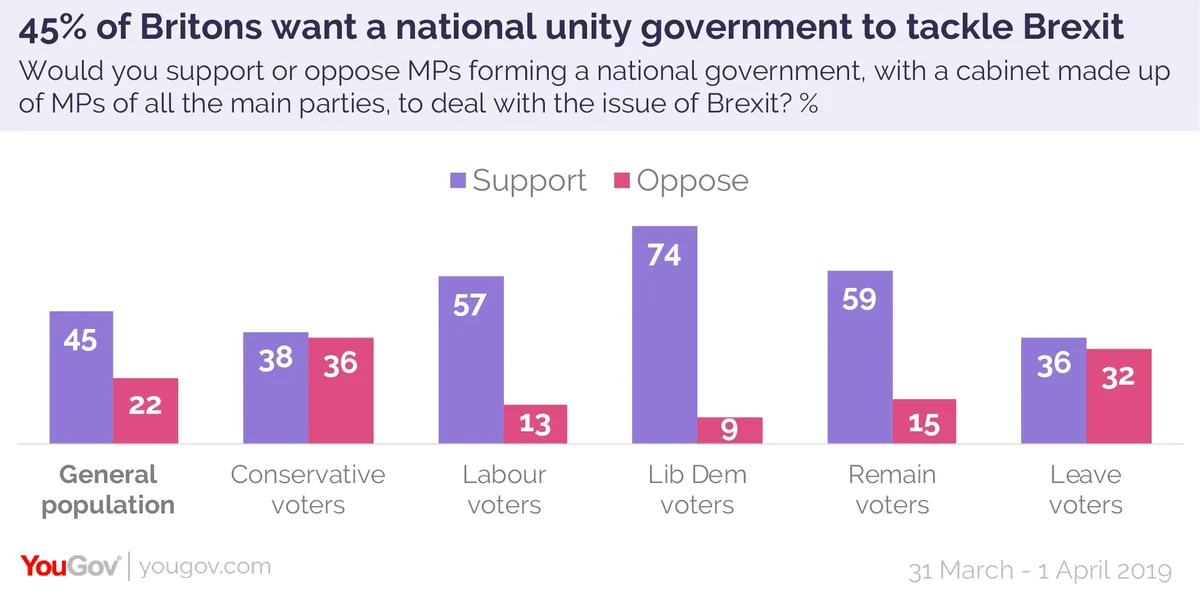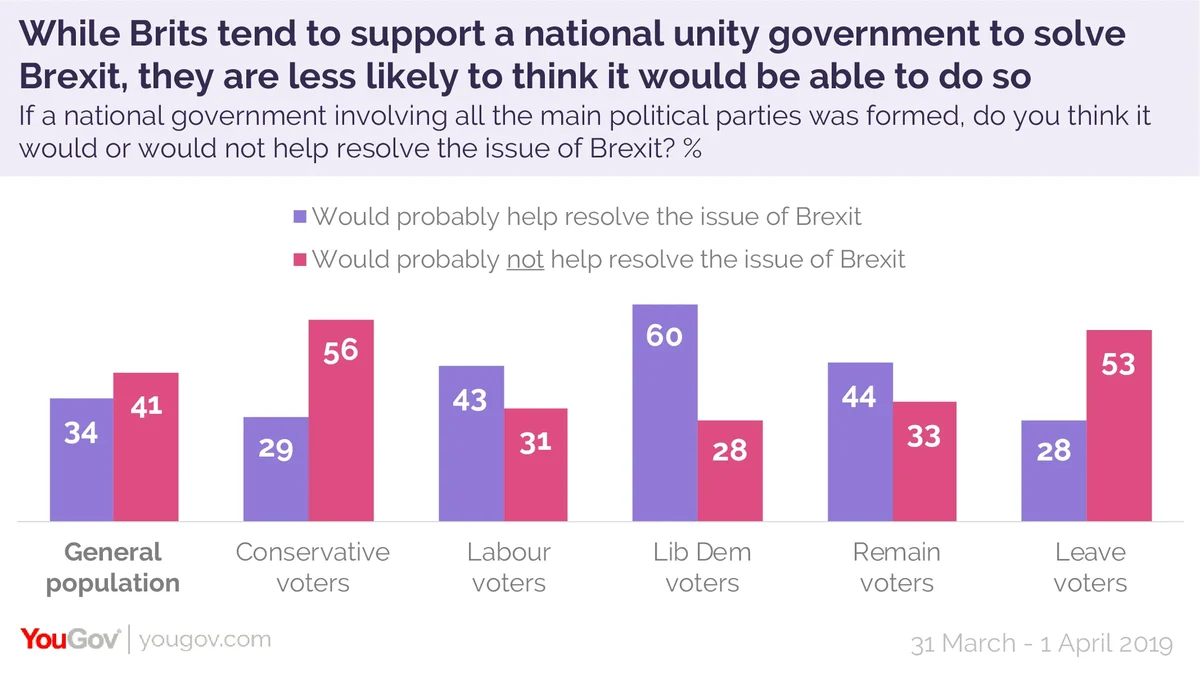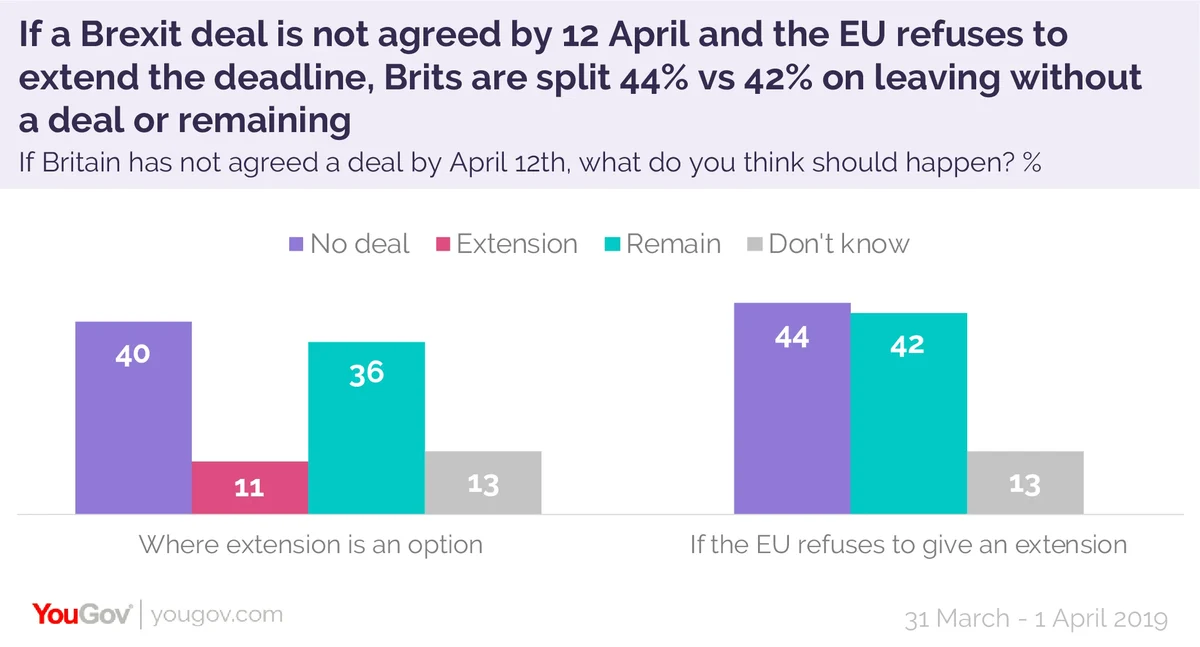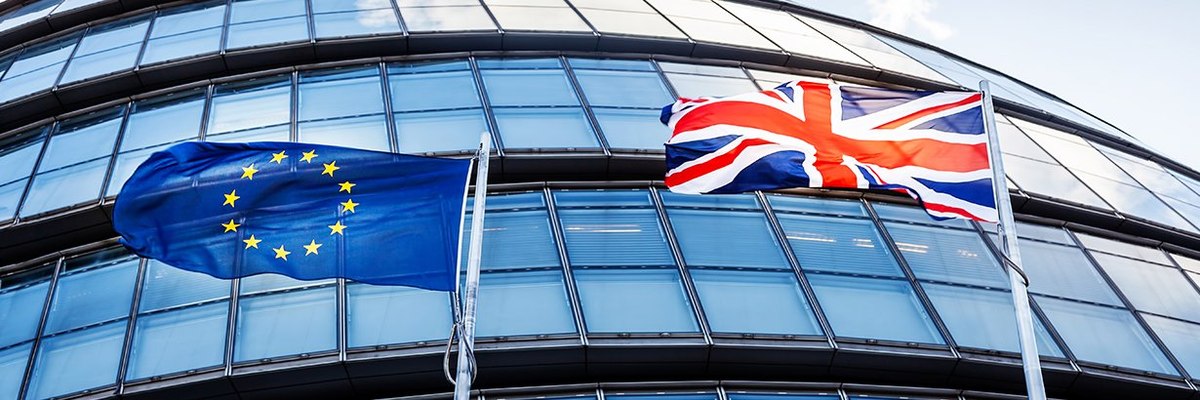We put three drastic steps to the population
With MPs unable to find a unanimously acceptable solution for Brexit, drastic suggestions on how to break the deadlock are being made. YouGov has put several of these to the public - but found little evidence of optimism.
A general election
Some have suggested a general election would break the deadlock, but the public is opposed to the idea – half of Brits (50%) don’t want to have to make another trip to the ballot box. In fact, only 29% do.
In any case, a mere 16% think it would help to resolve Brexit, and two thirds (69%) don’t think it would do any good.
Fewer people think an election would help resolve Brexit than want a vote - just 47% of those who want a vote think it would be likely to help - so it seems that some have an ulterior motive for wanting one.
Given that this gap is widest among Labour and Lib Dem voters (46% of the former back an early election but only 23% think it would help sort Brexit) it seems that many simply want to see their own party in power regardless of whether or not they stand a better chance of bringing Brexit to some sort of resolution.
A national government
Over the weekend former Prime Minister John Major called on the main parties to set aside their differences and form a national unity government to resolve Brexit. By two to one, Britons support such an arrangement - 45% back it, compared to only 22% who oppose.
Unsurprisingly, Labour voters (57%) and Lib Dem voters (74%) are much more enamoured with the idea than Conservative voters, who are split 38% in favour and 36% opposed.

Enthusiasm for the idea in principle is not matched by expectations that it will work in practice, however. Only 34% of Britons think a national government would probably help resolve Brexit, compared to 41% who do not.
As with the general election data, there are seemingly some who would prefer a national government in order to see their party in power, rather than because they think it will make Brexit better. That being said, there seems to be a greater level of belief in the ability of a national government to sort Brexit - two thirds (68%) of those who back a unity government think it will probably help (in contrast to the only 47% of general election proponents who felt the same).

A new Prime Minister
Half of Britons (48%) want Theresa May to stand down and let someone else have a crack at the Brexit nut. Only 31% want her to stay in post.
Again, however, few Brits think a change of management would be likely to solve the Brexit conundrum – just 15% would expect progress under a new PM compared to two thirds (68%) who think new leadership probably wouldn’t help. Even among those who want her to stand down, just 27% think that this would serve to make headway on Brexit.
Overall just under half of Britons (46%) think that any of the three above means of shaking up the Brexit process might help in any way. Three in ten (30%) don’t think a single one would make a difference, with the remaining 24% unsure in each case.
So what next?
With a second round of indicative Brexit votes in the Commons coming to nothing, and the Prime Minister’s Brexit deal looking no closer to pass than it was before, eyes turn towards the April 12th deadline that the EU set on Britain’s Article 50 extension.
Should we reach the deadline without a deal, only 11% of Britons would want to ask for an extension. Four in ten (40%) would just rather just leave without a deal, while a similar 36% would prefer that we gave up on Brexit and remained an EU member after all.

However, recent YouGov research has also showed that No-Dealers and Remainers say that they would prefer to drag out the Brexit process in order to get their preferred outcome rather than backing the PM’s Brexit deal, implying that while few people want an extension as their first choice, many more would back it if it looked like they were in danger of not getting their way.
Should the EU decide they’ve had enough of the Brexit process and refuse to give the UK an extension, then the country divides between the 44% who would want to leave without a deal and the 42% who would seek to stay in the Union.
Photo: Getty






